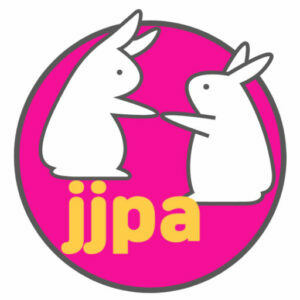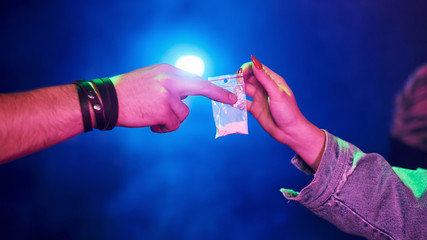Symptoms and Problems of Drug Use
The topic of today’s blog post is Symptoms and Problems of Drug Use. The use of drugs, whether recreational or prescription, can have profound consequences on physical and mental health. Understanding the symptoms and problems associated with drug use is crucial for promoting awareness and fostering informed decisions. In this exploration, we delve into the multifaceted issues surrounding drug use, shedding light on the symptoms and potential pitfalls individuals may encounter.
Symptoms of Drug Use


1. Physical Changes
– Noticeable changes in physical appearance, such as bloodshot eyes, dilated pupils, or sudden weight loss, can be indicative of drug use. Tremors, slurred speech, and impaired coordination are also common physical symptoms.
2. Behavioral Changes
– Drug use often leads to alterations in behavior. Individuals may exhibit erratic or unpredictable behavior, increased secrecy, or changes in social circles. Neglecting responsibilities and a decline in personal hygiene are red flags.
3. Mood Swings
– Fluctuations in mood, from extreme euphoria to deep depression or irritability, may signal drug use. Sudden and unexplained changes in emotional states can be linked to the influence of substances.
4. Financial Issues
– The need to fund a drug habit can result in financial strain. Individuals may experience difficulties in managing money, borrowing or stealing to support their drug use, and facing legal consequences as a result.
5. Social Isolation
– Drug use can lead to social withdrawal and isolation. Individuals may distance themselves from friends and family, preferring the company of those who share similar substance use patterns.
6. Deterioration in Performance
– Whether at work or school, the impact of drug use often manifests in a decline in performance. Poor concentration, reduced productivity, and frequent absences may become apparent.
Problems Associated with Drug Use


1. Addiction and Dependency
– One of the most significant problems linked to drug use is the development of addiction and dependency. Continuous use can lead to a cycle of craving, seeking, and using the substance despite negative consequences.
2. Health Complications
– Drug use can have severe health implications, ranging from cardiovascular issues to liver and kidney damage. Chronic use may also lead to mental health disorders, exacerbating existing conditions or triggering new ones.
3. Legal Consequences
– Engaging in illicit drug use often involves legal risks. Possession, distribution, or the influence of substances can result in legal consequences, including fines, probation, or incarceration.
4. Relationship Strain
– Drug use can strain relationships with family and friends. Breakdowns in communication, trust issues, and emotional distance are common challenges faced by individuals navigating substance abuse.
5. Overdose
– The risk of overdose is a critical concern associated with drug use. Substances vary in potency, and misuse or mixing can lead to life-threatening situations, including respiratory failure or cardiac arrest.
6. Impaired Cognitive Function
– Prolonged drug use can impair cognitive function, affecting memory, attention, and decision-making abilities. These cognitive deficits can persist even after cessation of drug use.
Understanding the symptoms and problems linked to drug use is paramount for fostering a society that prioritizes health and well-being. If you or someone you know is grappling with drug-related challenges, seeking professional help and support can be a pivotal step towards recovery. Through education, awareness, and compassionate intervention, we can collectively work towards minimizing the impact of drug use on individuals and communities.
Solutions and Treatments for Drug Use Problems


Overcoming drug use problems is a complex journey that requires a combination of support, commitment, and tailored interventions. In this exploration, we delve into various solutions and treatments designed to address drug use problems, fostering recovery and reclaiming lives.
Solutions and Treatments
1. Professional Counseling and Therapy
– Engaging in individual or group therapy sessions provides a supportive environment for addressing the root causes of drug use. Behavioral therapies, such as cognitive-behavioral therapy (CBT), help individuals develop coping mechanisms and reshape unhealthy thought patterns.
2. Medication-Assisted Treatment (MAT)
– For certain substance dependencies, medications can play a crucial role in the recovery process. MAT combines medications with counseling and behavioral therapies, helping to manage cravings and withdrawal symptoms.
3. Inpatient Rehabilitation Programs
– Inpatient rehabilitation offers intensive, structured treatment within a residential setting. This approach provides individuals with a supportive environment, around-the-clock care, and a focus on developing coping skills for long-term recovery.
4. Outpatient Rehabilitation Programs
– Outpatient programs allow individuals to receive treatment while continuing with daily life. These programs offer flexibility and may include counseling, group therapy, and educational sessions tailored to the individual’s needs.
5. Support Groups
– Participating in support groups, such as Narcotics Anonymous (NA) or Alcoholics Anonymous (AA), offers a sense of community and shared experiences. Peer support can be instrumental in maintaining sobriety and providing encouragement during challenging times.
6. Life Skills Training
– Developing essential life skills is integral to sustained recovery. Programs that focus on improving skills such as communication, time management, and stress coping contribute to a holistic approach to rehabilitation.
7. Family Therapy
– Involving family members in the recovery process through family therapy can help repair relationships strained by drug use. Education about addiction, open communication, and establishing a supportive family environment are key components.
8. Dual Diagnosis Treatment
– Individuals with co-occurring mental health disorders and substance use problems benefit from dual diagnosis treatment. This integrated approach addresses both aspects, ensuring comprehensive care and reducing the risk of relapse.
9. Holistic Approaches
– Holistic therapies, including yoga, meditation, and art therapy, can complement traditional treatment methods. These approaches focus on overall well-being, addressing the physical, emotional, and spiritual dimensions of recovery.
10. Continuing Care and Aftercare Programs
– Transitioning back into daily life is supported by continuing care and aftercare programs. These programs offer ongoing support, relapse prevention strategies, and resources to help individuals maintain their recovery journey.
11.Stress Management
– You need to find a way to relieve stress so that you don’t get stressed because you can find drugs
Recovery from drug use problems is a multifaceted process that requires dedication and comprehensive support. By combining professional counseling, therapeutic interventions, and a holistic approach to well-being, individuals can embark on a journey towards lasting recovery. Each person’s path is unique, and a personalized treatment plan, often involving a combination of these approaches, enhances the likelihood of success. Seeking help is a courageous step, and with the right support systems in place, individuals can overcome the challenges posed by drug use and build a healthier, substance-free future.

